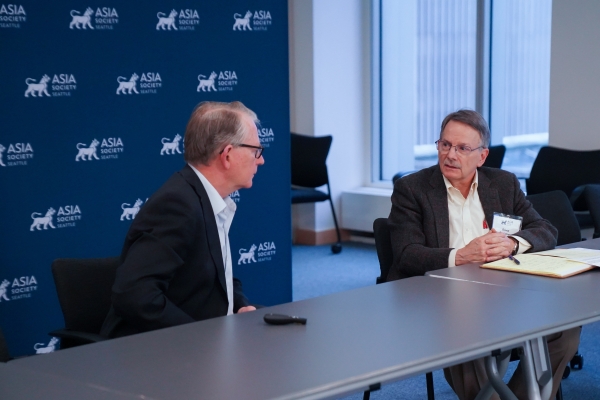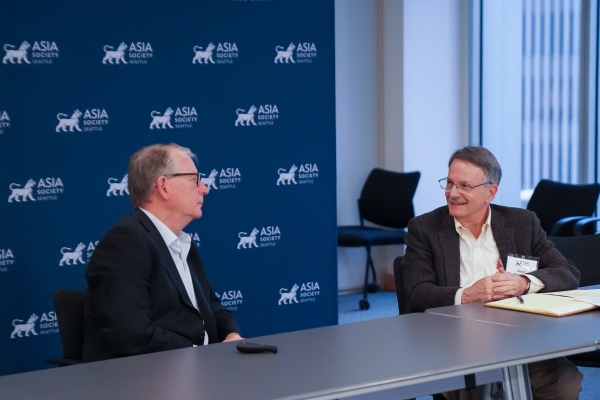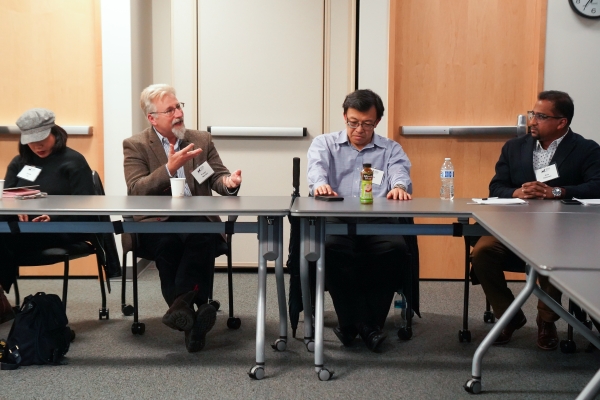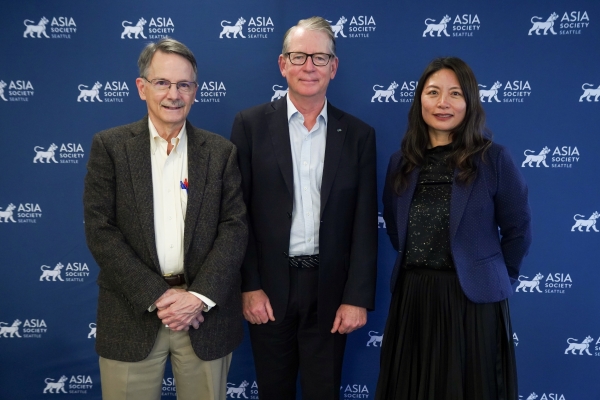Event Recap - Reflections on the 10th Anniversary of China’s Belt and Road Initiative – China’s Foreign Policy Strategy
On Thursday, September 28, Asia Society Seattle hosted Bates Gill, Executive Director of Asia Society Policy Institute’s Center for China Analysis, and David Bachman, Henry M. Jackson Professor of International Studies at the University of Washington, for a discussion on China's Belt and Road Initiative's (BRI) history, successes, challenges, and future directions in the context of China’s changing foreign policy strategy.
Bates Gill provided an overview of the BRI's history, highlighting its extensive geo-economic and geo-structural scale, encompassing 3000 projects in 150 countries with a total investment exceeding $1 trillion. He addressed some of the criticisms the BRI has faced and how it led to transformative changes, especially the recent introduction of Global Development Initiative, Global Security Initiative, and Global Civilization Initiative. In conjunction with the BRI, these new initiatives can serve as alternatives to strengthen efforts to reshape global norms and agendas on security, development, and domestic governance through the UN, Sino-centric multilateral forms, and bilateral governments. Gill also addressed questions from the audience about certain European countries' withdrawal from the Belt and Road Initiative and elaborating on the concept of "Debt Trap Diplomacy."
This event was the fourth part of our seven-part Seeking Truth Through Facts
U.S.-China Program Series which focuses on new strategic frameworks for the
bilateral relationship, plurilateral relationships, rebalancing trade, national security, technology, and climate change; as well as the global impact of the political and economic landscape.








